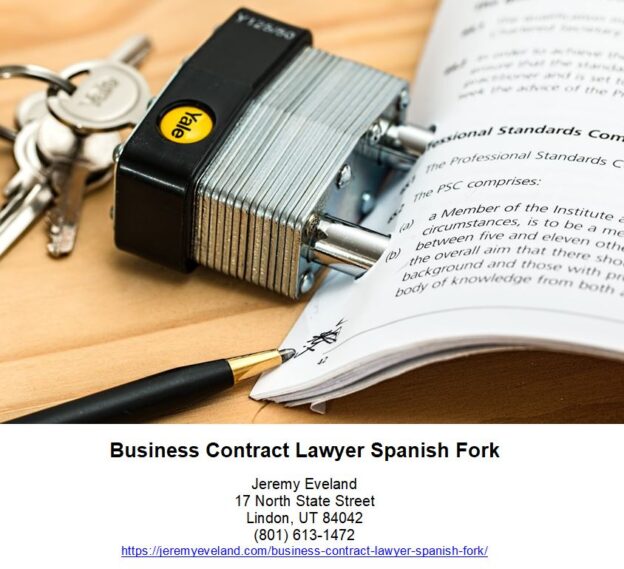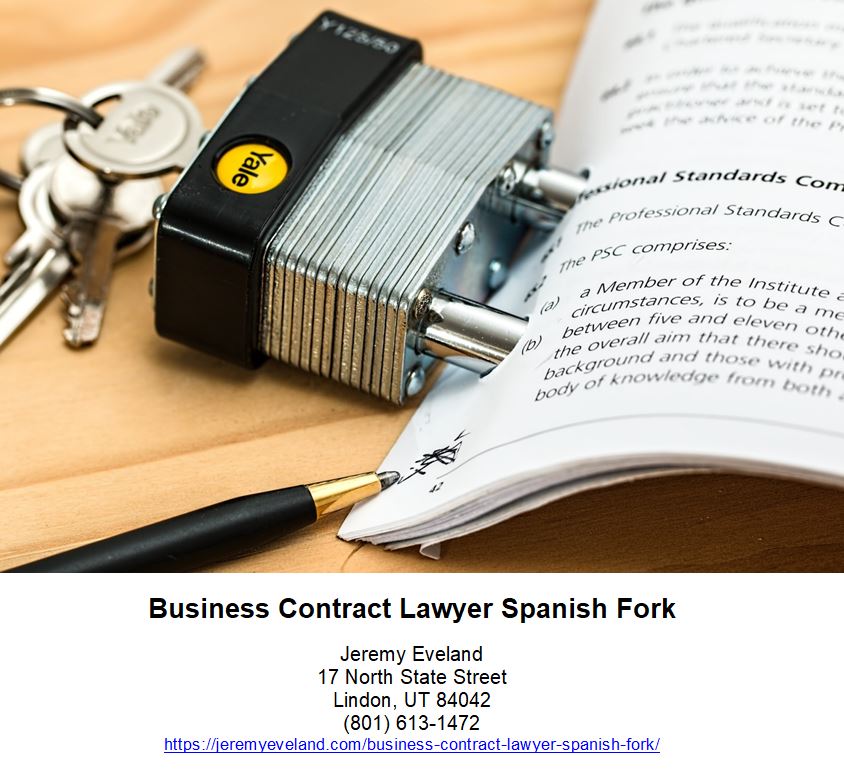Ready to start planning for your retirement? Look no further! This article is here to provide you with valuable information and guidance on retirement planning. We understand how important it is to secure a financially stable future, and that’s why we have compiled a range of useful tips and strategies to help you make the most out of your retirement years. Whether you are an individual or a couple, this article will equip you with the knowledge you need to make informed decisions and ensure a comfortable retirement. So, let’s dive in and start planning for your golden years today! Don’t forget to reach out to the attorney listed on our website for personalized assistance.
Saving for Retirement
Planning for retirement is an essential step to ensure financial security and peace of mind in your golden years. To start your retirement journey on the right foot, it is crucial to set realistic retirement goals, calculate your retirement needs, determine the savings required, choose the right retirement accounts, maximize employer contributions, and develop effective investment strategies.

Setting Retirement Goals
The first step in retirement planning is setting clear and achievable goals. Ask yourself what kind of lifestyle you envision during retirement. Consider factors such as travel, hobbies, and potential healthcare needs. By defining your retirement goals, you can establish a target amount for your savings and create a roadmap to reach it.
Calculating Retirement Needs
To accurately plan for retirement, you need to calculate your retirement needs. Start by evaluating your current expenses and projecting them into the future. Factor in potential changes, such as paying off your mortgage or increased healthcare costs. Consider inflation and the cost of living to estimate how much money you’ll require throughout your retirement years.
Determining Savings Required
Once you have determined your retirement needs, you can calculate the savings required to achieve your goals. Take into account the number of years you have until retirement and your expected investment returns. Utilize retirement calculators or consult with a financial advisor to determine the optimal savings rate to attain your desired retirement nest egg.
Choosing the Right Retirement Accounts
Choosing the right retirement accounts is vital to maximize your savings and minimize tax implications. Common options include individual retirement accounts (IRAs), employer-sponsored 401(k) plans, and Roth IRAs. Consider factors such as tax advantages, contribution limits, and withdrawal rules when selecting the most suitable retirement accounts for your needs.
Maximizing Employer Contributions
If your employer offers a retirement savings plan, such as a 401(k) with matching contributions, take full advantage of it. Employer contributions can significantly boost your retirement savings with minimal effort on your part. Contribute enough to maximize the full employer match to ensure you’re not leaving any free money on the table.
Investment Strategies for Retirement
Developing investment strategies tailored for retirement is crucial to make your money work for you. Consider diversifying your investments to reduce risk and optimize returns. Determine your risk tolerance and establish an appropriate asset allocation that aligns with your retirement goals. Don’t forget to periodically evaluate and rebalance your portfolio to maintain a balanced investment strategy.
Choosing Retirement Age
Choosing the right retirement age requires careful consideration of various factors that can impact your financial security during retirement. Factors to consider include social security benefits, pension payout options, healthcare considerations, and your desired retirement lifestyle.
Factors to Consider
When selecting your retirement age, consider factors such as your overall financial situation, health, and personal circumstances. Take into account whether you have dependents and if they rely on your income. Evaluate your savings and investments, as well as projected expenses, to determine if you’re financially ready to retire.
Social Security Benefits
Understanding how social security benefits work is essential when deciding on your retirement age. Consider the impact of early or delayed claiming on your monthly benefits. Determine the optimal age to begin receiving social security benefits based on your financial needs and longevity expectations.
Pension Payout Options
For individuals with pension plans, exploring the available payout options is crucial. Evaluate options like a lump-sum distribution, monthly annuity payments, or a combination of both. Consider factors such as financial stability, tax implications, and your retirement goals when deciding on the pension payout option that suits you best.
Healthcare Considerations
Healthcare is a significant consideration when choosing your retirement age. Evaluate your eligibility for Medicare and understand the coverage options available. Account for potential healthcare costs when calculating your retirement needs and consider how these costs may vary depending on your retirement age.
Click Here For More Information
Retirement Lifestyle
Your desired retirement lifestyle should also play a role in determining your retirement age. Consider the activities you hope to pursue and how your financial resources align with those aspirations. Assess whether working part-time or fully retiring would allow you to achieve the retirement lifestyle you envision.
Creating a Retirement Budget
Creating a retirement budget is a crucial step to ensure financial stability throughout your retirement years. By assessing current expenses, anticipating future expenses, considering inflation and the cost of living, managing debt, maintaining an emergency fund, and evaluating sustainable withdrawal rates, you can establish a solid financial plan for your retirement.
Assessing Current Expenses
Start by assessing your current expenses to establish a baseline for your retirement budget. Review your monthly bills, including housing costs, utilities, transportation, and daily living expenses. Consider discretionary spending, such as entertainment and travel, to determine areas where you may need to adjust your budget during retirement.
Anticipating Future Expenses
To create an accurate retirement budget, anticipate future expenses that may arise. Account for potential increases in healthcare costs, long-term care expenses, and changes in your lifestyle. Plan for travel, hobbies, and other retirement activities you hope to pursue. Anticipating future expenses will allow you to save and budget accordingly.
Inflation and Cost of Living
Inflation and the cost of living are crucial considerations when planning for retirement. Prices for goods and services tend to rise over time, reducing the purchasing power of your savings. Take inflation into account when projecting your retirement needs and make sure your budget includes room for cost-of-living increases throughout your retirement years.
Debt Management
Managing debt is essential for a sound retirement plan. Pay off high-interest debt, such as credit card balances, before retirement to reduce financial stress and interest payments. Evaluate your mortgage and consider the impact of paying it off or downsizing your home on your retirement budget. Minimizing debt will free up more income for your retirement expenses.
Emergency Fund in Retirement
Maintaining an emergency fund in retirement is crucial to protect yourself from unforeseen expenses. Set aside a fund that covers at least three to six months’ worth of living expenses to provide a safety net. Having an emergency fund ensures that unexpected costs, such as home repairs or medical bills, won’t derail your retirement budget.
Evaluating Sustainable Withdrawal Rate
To ensure your retirement funds are sustainable throughout your golden years, it is essential to establish a reasonable withdrawal rate. Calculate the percentage of your retirement savings that you can withdraw annually while preserving the longevity of your portfolio. Seek guidance from a financial advisor to determine an appropriate withdrawal rate based on your specific circumstances.
Estate Planning in Retirement
Estate planning is a crucial aspect of retirement planning that ensures your assets are protected, your wishes are followed, and your loved ones are cared for after your passing. Update your will and trust, consider power of attorney and healthcare directives, review beneficiary designations, minimize estate taxes, plan a legacy, and consider long-term care needs to ensure a comprehensive estate plan in retirement.
Updating Your Will and Trust
Reviewing and updating your will and trust is essential when entering retirement. Ensure that your beneficiaries are still current and reflect your wishes. Consider any changes in your financial situation or family circumstances that may warrant updates to your estate planning documents. Consulting an estate planning attorney can provide guidance in this area.
Power of Attorney and Healthcare Directives
Granting someone power of attorney and creating healthcare directives is crucial to ensure your wishes are followed if you become incapacitated. Designate a trusted individual to manage your financial and legal affairs and make healthcare decisions on your behalf. Ensure these documents are up to date and reflect your current wishes.
Beneficiary Designations
Reviewing and updating beneficiary designations is vital to ensure your assets pass smoothly to your intended heirs. Verify that your designations align with your current wishes and consider any changes in your family structure or relationships. Update beneficiary designations on retirement accounts, life insurance policies, and other assets to reflect your intentions.

Minimizing Estate Taxes
Efficiently minimizing estate taxes can help preserve your wealth for future generations. Work with an estate planning attorney or tax professional to explore strategies such as gifting, trusts, and charitable giving to reduce your estate tax liability. By implementing these strategies, you can ensure that more of your assets pass on to your loved ones.
Legacy Planning
Legacy planning allows you to leave a lasting impact and make a difference in the world. Consider your philanthropic goals and desired legacy. Explore options such as establishing a charitable foundation or endowment, donating to causes close to your heart, or leaving a bequest in your will. Define how you want to be remembered and make a plan to achieve it.
Long-Term Care Planning
Considering long-term care needs in your estate plan is essential to protect your assets and ensure quality care in the event of illness or disability. Explore long-term care insurance options and understand the benefits they can provide. Review your retirement savings and consider whether it is necessary to set aside funds specifically for potential long-term care expenses.
Managing Retirement Income
Effectively managing your retirement income is crucial to maintain financial stability and ensure a comfortable retirement. Take into account pensions and annuities, employ smart Social Security strategies, understand retirement account distributions, meet required minimum distributions (RMDs), manage the taxation of retirement income, and explore income from investments to maximize your income potential.
Pensions and Annuities
If you are fortunate enough to have a pension or annuity, understanding how they work is crucial for managing your retirement income. Review the terms and options available for your pension plan or annuity to make informed decisions about when and how to receive payments. Consider factors such as financial stability, tax implications, and your retirement goals.
Social Security Strategies
Developing smart Social Security strategies can significantly impact your retirement income. Understand the rules and regulations governing Social Security benefits, including the impact of early or delayed claiming. Explore strategies such as spousal benefits, file and suspend, or claiming benefits based on your ex-spouse’s record. Optimize your Social Security income with careful planning.
Retirement Account Distributions
Properly managing retirement account distributions is essential for both tax efficiency and income optimization. Understand the rules surrounding distributions from your retirement accounts, such as 401(k)s and IRAs. Consider factors such as required minimum distributions (RMDs) and the impact of early withdrawals on your retirement income. Seek professional advice if needed to make informed decisions.
Required Minimum Distributions (RMDs)
Once you reach the age of 72 (70 1/2 if born before July 1, 1949), you are required to take minimum distributions from certain retirement accounts. Understand the rules and calculation methods for RMDs to avoid penalties and ensure compliance. Schedule distributions accordingly to meet your income needs while satisfying the IRS requirements.
Taxation of Retirement Income
Taxation of retirement income can significantly impact your overall financial picture. Familiarize yourself with the tax rules surrounding retirement income, such as Social Security benefits, pension payments, and withdrawals from retirement accounts. Explore strategies to minimize your tax liability by balancing withdrawals from taxable and tax-advantaged accounts.
Income from Investments
Generating income from investments is a potential strategy to supplement your retirement income. Explore options such as dividend-paying stocks, interest from bonds, or rental income from real estate investments. Diversify your investment portfolio to balance risk and return while considering your income needs and risk tolerance.
Healthcare in Retirement
Navigating healthcare options in retirement is a critical aspect of your overall retirement plan. Understand Medicare enrollment, explore Medicare coverage options, consider Medicare supplement insurance, evaluate long-term care insurance, estimate healthcare costs, and plan for potential health risks to ensure peace of mind during your retirement years.
Medicare Enrollment
Understanding Medicare and its enrollment process is crucial for accessing healthcare benefits in retirement. Learn about the different parts of Medicare, including Part A, Part B, Part C (Medicare Advantage), and Part D (prescription drug coverage). Familiarize yourself with the initial enrollment period, general enrollment period, and special enrollment periods to avoid potential penalties.
Medicare Coverage Options
Exploring Medicare coverage options is essential to ensure your healthcare needs are adequately met. Compare original Medicare with Medicare Advantage to determine which option suits you best. Evaluate factors such as coverage for doctors and hospitals, prescription drugs, and out-of-pocket costs to make an informed decision about your Medicare enrollment.
Medicare Supplement Insurance
Consider purchasing Medicare supplement insurance, also known as Medigap, to cover out-of-pocket expenses not covered by original Medicare. Medigap policies help fill the gaps in coverage, such as deductibles, copayments, and coinsurance. Research different Medigap plans to find one that aligns with your healthcare needs and budget.
Long-Term Care Insurance
Long-term care insurance can provide financial security and peace of mind in the event of an extended illness or disability. Evaluate your potential long-term care needs and consider the benefits of long-term care insurance policies. Explore different coverage options and premiums to find a policy that suits your needs and budget.
Healthcare Costs in Retirement
Estimating healthcare costs in retirement is essential for budgeting and financial planning. Research the average costs of healthcare services, including doctor visits, prescription drugs, hospital stays, and long-term care. Take into account potential increases in healthcare costs due to inflation and consider how these expenses may impact your retirement budget.
Planning for Health Risks
Planning for potential health risks in retirement is crucial to protect your financial future. Consider the possibility of needing long-term care and plan accordingly. Explore options such as long-term care insurance or setting aside funds specifically for potential healthcare needs. Prioritize a healthy lifestyle to mitigate the risk of chronic illnesses and healthcare expenses.
Longevity and Retirement
Considering the impact of longevity is essential when planning for retirement. Life expectancy can significantly affect your financial resources and your ability to maintain your desired lifestyle throughout retirement. Explore factors such as managing longevity risk, long-term financial planning, longevity-linked financial products, and promoting health and wellness to ensure a fulfilling retirement.
Life Expectancy Considerations
Life expectancy is a critical factor in retirement planning. Understand the average life expectancy in your country and consider your own health, lifestyle, and family history. Account for the possibility of living longer than expected when determining your retirement savings, withdrawal rates, and insurance needs. Planning for an extended retirement period will ensure your financial security.
Managing Longevity Risk
Managing longevity risk involves ensuring you have sufficient financial resources to sustain your lifestyle throughout retirement. Consider the potential financial implications of a longer-than-expected retirement period. Plan your savings and investment strategies with a focus on maintaining income throughout your lifetime, even if you live significantly longer than average.
Long-Term Financial Planning
Long-term financial planning is essential to navigate the uncertainties of retirement, particularly in terms of longevity. Assess your financial goals and priorities, evaluate potential risks, and adjust your retirement plan accordingly. Regularly review and update your financial plan to ensure it continues to align with your changing circumstances and retirement vision.
Longevity-Linked Products
Explore longevity-linked financial products to protect against the risks associated with living longer than anticipated. Consider options such as longevity insurance or annuities with lifetime income guarantees. These products provide additional income in the later years of retirement, ensuring that your savings last throughout your lifetime, regardless of how long that may be.
Health and Wellness in Retirement
Promoting health and wellness is essential for a fulfilling retirement. Prioritize healthy habits such as regular exercise, a balanced diet, and regular check-ups to maintain your well-being. By taking care of your physical and mental health, you are more likely to enjoy a longer, healthier, and more active retirement.
Transitioning to Retirement
Transitioning to retirement involves careful planning and considerations to ensure a smooth and fulfilling experience. Explore options such as phasing into retirement, working part-time, retiring from self-employment, preparing yourself emotionally and psychologically, and establishing support networks to make the transition a positive and rewarding process.

Phasing into Retirement
Phasing into retirement can be a practical approach for those who want to gradually transition from full-time work to retirement. Consider reducing your work hours or taking on a part-time job to ease the financial and emotional adjustment to retirement. Phasing into retirement allows for a smoother transition while still maintaining a sense of purpose and income.
Working Part-Time
Working part-time during retirement can provide financial benefits and keep you engaged in the workforce. Explore part-time job opportunities that align with your interests and skills. Part-time work can supplement your retirement income, provide structure, and keep you socially connected during your retirement years.
Retirement from Self-Employment
Retiring from self-employment requires careful planning and consideration of both financial and personal factors. Determine the optimal time to exit your business, taking into account your financial stability and potential succession plans. Consider the impact of selling or transferring your business on your retirement income and ensure a smooth transition for your employees and customers.
Smooth Retirement Transitions
Ensuring a smooth transition into retirement involves careful planning and preparation. Set clear goals and expectations for your retirement and create a timeline for key milestones. Address any financial considerations, such as paying off debt or downsizing your home, well in advance. Seek emotional support from friends, family, or professionals to navigate the emotional and psychological aspects of retirement.
Emotional and Psychological Preparation
Retirement brings significant changes and adjustments that can impact your emotional well-being. Take time to reflect on your identity, purpose, and what brings you joy outside of work. Engage in activities, hobbies, and social connections that will provide fulfillment during retirement. Prepare emotionally and psychologically for this new phase of life to ensure a positive experience.
Support Networks
Establishing support networks during retirement is crucial for maintaining social connections and a sense of community. Cultivate relationships with friends, family, and neighbors who provide support and companionship during your retirement years. Consider exploring social groups, clubs, or volunteer opportunities to meet new people and engage in activities that align with your interests.
Investment Strategies for Retirement
Developing investment strategies suited for retirement is essential to preserve and grow your wealth while managing risk. Explore strategies such as diversification, considering risk tolerance, determining asset allocation, managing market volatility, rebalancing your portfolio, and evaluating investment performance to ensure a successful and secure retirement.
Diversification
Diversification is a key strategy for minimizing risk and optimizing returns in retirement. Spread your investments across different asset classes, such as stocks, bonds, and real estate, to mitigate the impact of market fluctuations on your portfolio. Consider diversifying within each asset class to further protect against volatility and market risks.
Risk Tolerance
Understanding your risk tolerance is crucial when developing investment strategies for retirement. Assess your ability to handle market downturns and potential losses. Consider your time horizon, financial goals, and comfort level with risk when determining the appropriate level of risk exposure in your investment portfolio.
Asset Allocation
Determining the optimal asset allocation for your retirement portfolio is essential for achieving your financial goals. Evaluate your risk tolerance, time horizon, and expected returns when deciding on the percentage allocation to stocks, bonds, and other investment vehicles. Adjust your asset allocation periodically as your retirement goals and financial circumstances change.
Managing Market Volatility
Market volatility is an inherent part of investing. Develop strategies to manage market fluctuations and minimize their impact on your retirement portfolio. Consider strategies such as regular rebalancing, dollar-cost averaging, and maintaining a long-term perspective to navigate market uncertainties with confidence.
Rebalancing Portfolio
Regularly rebalancing your portfolio is crucial for maintaining your desired asset allocation and managing risk. As market values fluctuate, the asset allocation of your portfolio may deviate from your intended targets. Rebalance periodically by selling assets that have increased in value and buying assets that have underperformed. Rebalancing ensures that your portfolio aligns with your investment strategy.
Evaluating Investment Performance
Evaluating the performance of your investments is essential to ensure they align with your retirement goals. Monitor your portfolio’s returns, compare them to market benchmarks, and assess whether your investments are meeting your financial objectives. Regularly review and adjust your investment strategy to maximize your chances of achieving long-term success.
Retirement Income Options
Selecting the right retirement income options is crucial for maintaining a sustainable and comfortable lifestyle in retirement. Explore systematic withdrawal strategies, consider annuities, evaluate dividend and interest income, explore rental income options, part-time work opportunities, and assess the potential benefits of a reverse mortgage for your retirement income needs.
Systematic Withdrawal
Systematic withdrawal is a common strategy for generating retirement income. Determine a sustainable withdrawal rate from your retirement savings to ensure your money lasts throughout your retirement years. Balance your income needs with preserving the longevity of your portfolio and adjust your withdrawals periodically based on your financial situation and market conditions.
Annuities
Annuities can provide a steady stream of income throughout your retirement. Consider fixed annuities or variable annuities, depending on your risk tolerance and income requirements. Explore the features, costs, and potential tax implications associated with annuities to determine if they align with your retirement income goals.
Dividends and Interest
Generating income from dividends and interest is a popular strategy among retirees. Invest in dividend-paying stocks or bonds to take advantage of regular income payments. Dividend stocks can offer stability and income growth, while interest from bonds provides predictable cash flow. Consider your risk tolerance and income needs when incorporating these investment vehicles into your retirement income strategy.
Rental Income
If you own real estate properties, rental income can be an attractive source of retirement income. Evaluate the potential returns from rental properties and consider the associated responsibilities, such as property management and maintenance. Rental income can provide ongoing cash flow and potential appreciation over time.
Part-Time Work
Working part-time during retirement can provide both financial and personal benefits. Explore part-time job opportunities that align with your skills and interests. Part-time work can supplement your retirement income, provide structure, and keep you socially engaged. Consider your desired work-life balance and how part-time work can fit into your retirement plans.
Reverse Mortgage
A reverse mortgage is a financial option that allows homeowners to convert a portion of their home equity into cash. Consider a reverse mortgage if you have significant home equity and want additional income in retirement without selling your home. Explore the requirements, costs, and implications of a reverse mortgage before deciding if it is a suitable option for your retirement income needs.
In conclusion, thorough retirement planning involves setting realistic goals, calculating your retirement needs, choosing the right retirement accounts, maintaining a budget, engaging in estate planning, managing retirement income and healthcare, considering longevity, and navigating the transition into retirement. By developing comprehensive strategies in each of these areas, you can enjoy a financially secure and fulfilling retirement. Remember, seeking the guidance of qualified professionals, such as financial advisors and estate planning attorneys, can provide invaluable assistance throughout this process. Start planning for your retirement today to ensure a brighter future tomorrow!













